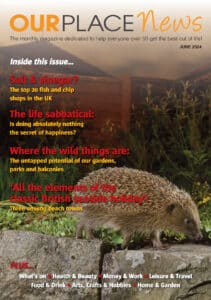Wherever you live, whatever you do, whatever you like to read, and whatever you like to eat there’s not a day goes by without headlines about the seeming inexorable march of veganism, vegans and vegan food.

Let me say before I go any further that I’m not anti-vegan – I respect an individual’s right to make a lifestyle choice – period.
What I’m referring to is the increasing “noise” that we have seen over recent months extolling the virtues of a Vegan lifestyle. Am I being sensitive or is this just clever marketing or is the world actually beginning to change?
It’s not just veganism that seems to be constantly in the news, its food in general. There seems to have been a rapid rise in the focus on food allergies over the last 20 years, It seems like every other person is dairy free, gluten free, has a nut allergy or some other food related allergy that “must” be catered for.
Better information
And of course that’s quite right – those who have allergies that cause serious illness (or even prove fatal) need to be able to protect themselves from inadvertently consuming food stuffs that contain the allergens that can have serious consequences for their health.
As a society we are now better informed about the food that we eat, what it does to our bodies when we have ingested it, how it is produced, how sustainable it is, and how damaging (or otherwise) its production is to the environment.
Rearing animals for food is a contentious issue and one that has received much media coverage recently. Many scientists have pointed out that rearing animals’ takes a lot of energy and the resultant emission are detrimental to the environment. So it should come as no surprise that an estimated third of Britons have either stopped eating meat altogether or reduced their intake considerably.
There is a sea change taking place in our eating habits and it is estimated that as many as one in eight of the population see themselves either vegetarian or vegan. But where things are really changing is that around one in five of us identify as being “flexitarian”, which means that essentially they consume mainly a vegetable based diet but that occasionally they will supplement their diet with some meat or fish.
Add these two figures together and it shows that approaching an astonishing 30% of the UK population admits to either having given up on meat completely or have reduced their consumption of it considerably.
Is there a link?
Many people who choose a vegan or vegetarian diet don’t just do it because it’s a trendy thing to do, they do it because of their ethical principles and concern for the environment: many see it as contributing to the fight against climate change.
Animal farming, whether they are farmed for meat or for other products such as milk, is a very intensive process and a considerable amount of carbon dioxide is produced in doing so – reducing the consumption of meat and dairy products is therefore seen by many as a positive way of reducing CO2 emissions.
And the movement is growing. The Vegan Society now estimate that there are around 540,000 vegans in the UK, of which two thirds are women, up from a figure of just 150,000 in 2006. There are believed to be a further 360,000 people who describe themselves as “lifestyle vegans”, people who commit to only using or buying cosmetics and clothes that are free from animal products.
Meanwhile an estimated 5.7% of the population describe themselves as “vegetarian”, which in numbers terms equates to around 3 million people in the UK.
So how does this help the climate?
If the demand for meat and dairy products declines it stands to reason that the number of animals that are required to produce that food would also decline. If the number of animals that are reared for the food chain declines, then without doubt the amount of greenhouse gas emissions would also decline. Clearly if you are a non or low meat eater then this is a win-win situation. In fact it is estimated that the food consumed by a meat eater contributes twice as much, in terms of greenhouse gas emissions, to global warming than a vegan, whilst that consumed by a vegetarian is estimated to account for some 30% less emissions in its production.
Now I’m not for one minute advocating that we all become vegan, or vegetarian, overnight, but what the evidence is showing is that our continued reliance on eating meat is a big contributor to greenhouse gas emissions. A little adjustment to our diets can not only help us consume less meat, which is proven to be good for your health, but it can also help the environment as well.
Now there’s food for thought!
(Story source: Mature Times)

